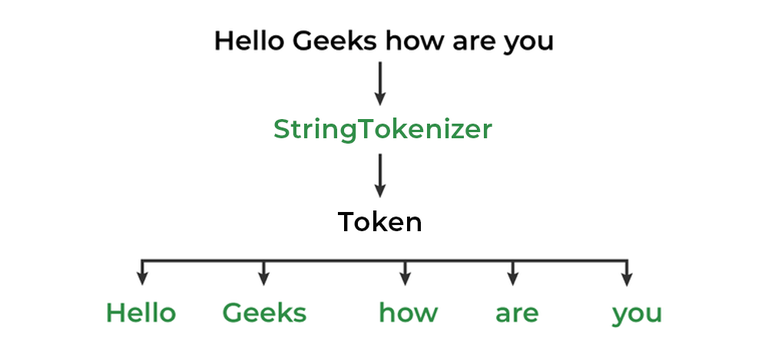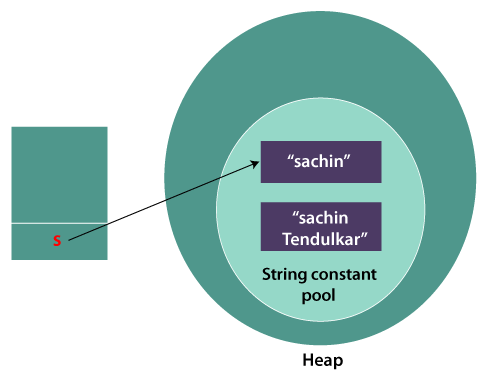Immutable Strings: A Secret Component in Ensuring Data Uniformity and Integrity
In the realm of information administration, the significance of unalterable strings can not be overemphasized. These unvarying sequences of personalities play an essential duty in supporting the integrity and accuracy of info within systems. By preserving a state of immutability, data consistency is made sure, cultivating a foundation of dependability whereupon crucial procedures depend. The concept of unalterable strings goes beyond simple technicality; it is a cornerstone in the complex internet of data governance. As we explore the benefits, implementation strategies, and practical applications of immutable strings, a more clear photo emerges of their important nature in protecting the electronic landscape.
The Principle of Unalterable Strings
Immutable strings, a fundamental concept in shows, refer to strings that can not be customized once they are developed. Basically, as soon as a string worth is appointed, any operation that appears to change the string in fact creates a brand-new string. This immutability makes sure data uniformity and dependability in applications, as it stops unanticipated adjustments to the original information.
Advantages in Information Uniformity

Information uniformity is crucial in different elements of software application advancement, consisting of data source management, multi-threaded environments, and distributed systems (Why are strings immutable in Java?). Immutable strings add dramatically to achieving this uniformity by preventing data corruption because of concurrent access. In circumstances where several procedures or strings engage with the same information all at once, unalterable strings act as a secure against race conditions and synchronization problems
Moreover, the immutability of strings streamlines debugging and screening procedures. With immutable strings, programmers can rely on that once a string is established, it will certainly remain unchanged, making it less complicated to trace the resource of mistakes and guaranteeing that examination cases produce constant outcomes. This reliability in information taking care of eventually brings about much more secure and durable applications.

Carrying Out Immutable Strings
Guaranteeing the immutability of strings requires a thoughtful approach to their application in software application development. One key approach is to develop string courses in a manner that avoids adjustments when a string object is created. By making strings immutable, developers can boost data consistency and reliability in their applications.
To apply immutable strings successfully, developers must favor creating brand-new string objects as opposed to customizing existing ones. This practice ensures that when a string is assigned a worth, it can not be changed. Furthermore, any procedure that shows up to change the string ought to develop a brand-new string with the desired adjustments rather of modifying the initial.
Additionally, utilizing unalterable strings can simplify concurrency administration in multi-threaded settings. Because unalterable strings can not be changed after development, they can be safely shared amongst numerous strings without the threat of information corruption.
Role in Integrity Guarantee
In software program development, the usage of immutable strings plays a crucial function in guaranteeing the dependability of information operations. Unalterable strings, as soon as produced, can not be modified, guaranteeing that the data they stand for continues to be regular throughout the application's execution. This immutability property offers a degree of assurance that the data being processed will certainly not be accidentally changed, resulting in unanticipated results or mistakes in the system.
By integrating immutable strings into software program layout, programmers can improve the dependability of their applications by minimizing the threats connected with mutable information - Why are strings immutable in Java?. Unalterable strings assist in stopping data corruption or unplanned adjustments, which can be specifically vital when managing delicate information or when information stability is extremely important
Furthermore, the use of immutable strings simplifies concurrent read what he said processing, as multiple strings can safely gain access to and share string information without the threat of one thread altering the content while another is reviewing it. This aspect contributes significantly to the total dependability of the software application system, ensuring predictable and consistent actions in information managing procedures.
Applications and System Combination
The smooth combination of unalterable strings into various applications and systems is pivotal for making sure robust information consistency and integrity throughout varied technological settings - Why are strings immutable in Java?. Unalterable strings play a vital function in enhancing the stability of data exchanges and communications within complex software program ecosystems. By integrating immutable strings right into applications, designers can reduce the dangers related to information tampering, unapproved alterations, and unintentional modifications, thus fortifying the overall security posture of the system
In the context of system integration, unalterable strings serve as a foundational component for establishing protected communication networks and assisting in seamless data transfers in between different parts. Their immutable nature makes sure that data sent between systems continues to be the same and proven, lowering the probability of variances or errors that can jeopardize the integrity of the entire system. Furthermore, unalterable strings can enhance helpful hints interoperability in between diverse systems by giving a standardized layout for data depiction, making it possible for much more effective information handling and exchange procedures across interconnected systems. By taking on unalterable strings in applications and system combination processes, organizations can strengthen their data framework and support the reliability and uniformity of their information properties.
Final Thought
Finally, immutable strings play an important duty in preserving data uniformity and reliability in various applications and system integrations. By making sure that strings can not be changed once produced, the stability of information is protected, lowering the threat of errors and incongruities. Implementing immutable strings can considerably boost the dependability of systems, inevitably resulting in more accurate and reliable data processing.
